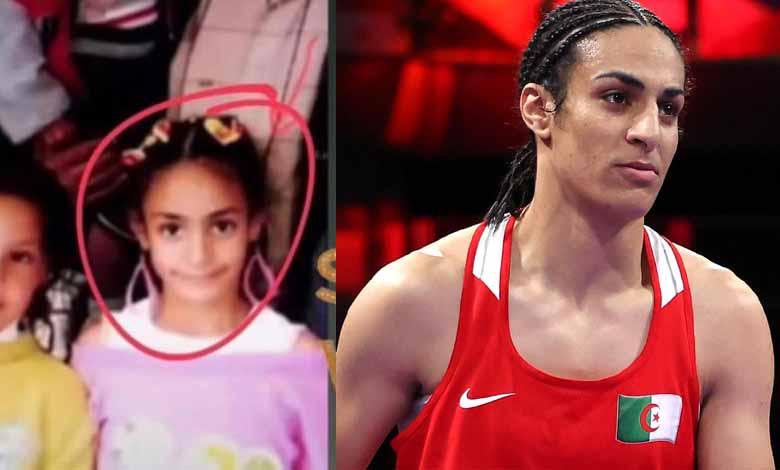Paris Olympics | Imane Khelif’s Gender Controversy: Does the Muslim Female Boxer Really Have Male XY Chromosomes?
Imane Khelif, the 25-year-old Algerian boxer, has been at the center of a heated debate following her recent victory over Italy's Angela Carini at the 2024 Olympic Games.

Paris: Imane Khelif, the 25-year-old Algerian boxer, has been at the center of a heated debate following her recent victory over Italy’s Angela Carini at the 2024 Olympic Games.
Despite her triumph, rumors and speculation regarding her gender have overshadowed her achievement, stemming from a previous disqualification at the 2023 Women’s World Boxing Championships.
Khelif was disqualified from the 2023 Women’s World Boxing Championships organized by the Russian-led International Boxing Association (IBA) due to unspecified gender eligibility tests.
The disqualification occurred just three days after Khelif defeated Azalia Amineva, a previously unbeaten Russian prospect, leading to questions about the timing and motivations behind the decision. This move restored the Russian boxer’s undefeated record, sparking controversy and raising eyebrows about potential bias.
IOC and Paris Boxing Unit Support Khelif
In response to the growing rumors, the International Olympic Committee (IOC) and its Paris Boxing Unit have affirmed that Imane Khelif is indeed eligible to compete in the Olympic Games. They have criticized the IBA’s previous disqualification as “sudden and arbitrary,” highlighting that the decision was made “without any due process.” The IOC has further clarified that there is no evidence indicating that Khelif possesses XY chromosomes or elevated testosterone levels that would disqualify her from participating in women’s boxing events.
World Boxing Vice President’s Claims
Adding fuel to the fire, István Kovács, the European Vice President of the World Boxing Organization and former Secretary General of the International Boxing Association, claimed that Khelif is “biologically male.” Kovács stated:
“The problem was not with the level of Khelif’s testosterone, because that can be adjusted nowadays, but with the result of the gender test, which clearly revealed that the Algerian boxer is biologically male.”
This assertion has been widely disputed and criticized for lacking substantial evidence and for ignoring the IOC’s official stance on the matter. Kovács also alleged that he had previously warned the IOC about males participating in women’s boxing as early as 2022 but felt that his warnings were ignored.
Understanding Gender Determination Systems
In humans, gender is typically determined by the XX and XY chromosome system. Females usually have two X chromosomes (XX), while males have one X and one Y chromosome (XY). However, there are exceptions, such as individuals with Klinefelter syndrome (XXY) or Swyer syndrome (XY females), which can complicate gender determination.
Despite these complexities, Imane Khelif’s eligibility has been verified by the IOC, and no evidence has been presented to suggest she does not fit the criteria for female competition. The IOC has emphasized that Khelif’s participation is in full compliance with Olympic standards, and she is recognized as a female athlete.
Imane Khelif’s Father Defends Her Identity
In the wake of the controversy, Imane Khelif’s father, Omar Khelif, has spoken out to defend his daughter’s gender identity. In an interview with Sky News, he affirmed:
“My daughter is a woman, we have all the evidence, including her birth certificate. She was born and raised as a girl. She’s a strong girl. I raised her to be hard-working and brave. She has a strong will to work and to train.”
Omar Khelif emphasized that the allegations against his daughter were unfounded and motivated by her success in the ring rather than any genuine concerns about her gender.
A Call for Respect and Fairness
As the debate continues, many in the sports community are calling for respect and fairness in the treatment of athletes like Imane Khelif. The issue highlights the challenges faced by athletes who become embroiled in controversies that detract from their sporting achievements.
The IOC’s decision to support Khelif underscores the importance of evidence-based assessments rather than speculation. While the debate over gender eligibility in sports remains complex, the case of Imane Khelif serves as a reminder of the need for transparency, fairness, and respect for individual identities.
Conclusion
Imane Khelif’s journey at the 2024 Olympic Games continues, with the support of the IOC and a determination to prove her prowess in the boxing ring. As she prepares for her upcoming bouts, the focus shifts back to her skills and achievements, reaffirming her position as a trailblazer for women in sports.
